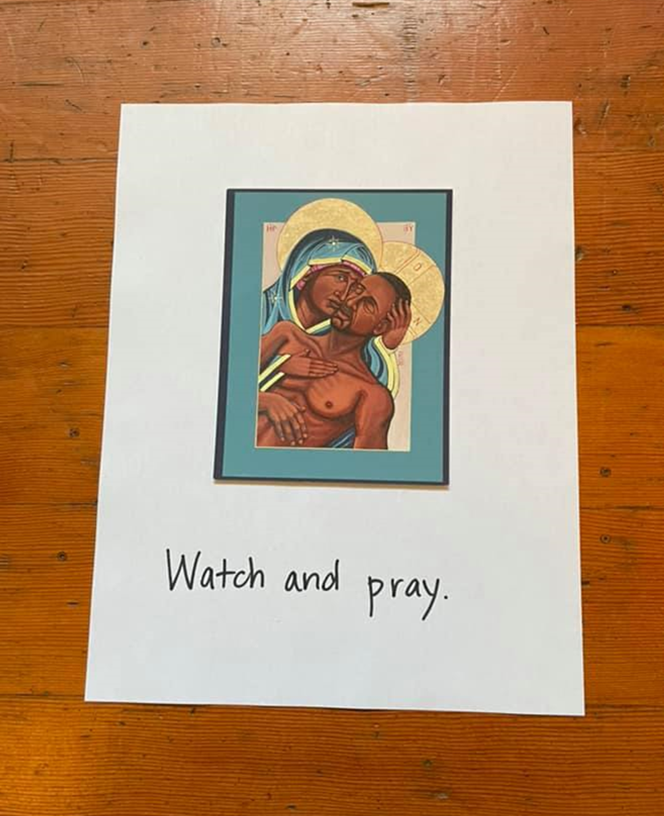Fourth Sunday of Easter
- Acts 4:8-12
- 1 John 3:1-2
- John 10:11-18
One of the earliest images of Jesus was as the Good Shepherd.
From the Catacomb of Callixtus, Rome, 3rd Century AD.
Reflection Written By: Katy Callaghan Huston, MAPS; Lector and RCIA Catechist
Jesus, is the Good Shepherd. We need to keep that in mind. No hierarchy in our church—including Pope Francis—is The Good Shepherd. Only Jesus fulfills that role for us.
All the readings for this Fourth Sunday of Easter speak to me in light of the situation we at St. Joseph find ourselves in, and at first I found it hard to find a focus. Then I carefully and prayerfully reread each of the four scripture passages that we have been given.
Peter reminds us that:
“There is no salvation through anyone else,
nor is there any other name under heaven
given to the human race by which we are to be saved.”
Jesus is the Good Shepherd.
The Psalm reminds us that:
“It is better to take refuge in the LORD
than to trust in man.
It is better to take refuge in the LORD
than to trust in princes.“
Jesus is the Good Shepherd.
The First Letter of John reminds us that:
“Beloved, we are God’s children now;
what we shall be has not yet been revealed.
We do know that when it is revealed we shall be like him,
for we shall see him as he is.“
Jesus is the Good Shepherd
And the Gospel tells us what it means to be The Good Shepherd
“I am the good shepherd,
and I know mine and mine know me,
just as the Father knows me and I know the Father;
and I will lay down my life for the sheep.“
Sadly, our Church, as it has become, seems to think “it”, that is the hierarchy, is our good shepherd. We are “led” to believe that we must follow that shepherd and do what that shepherd says. I was told back in my college years that “The church is not a democracy.” Well, maybe so. But is it, then a “dictatorship?” Is our church one who has all the answers, has no ear for the People of God and “leads us in right paths” (Psalm 23:3)? I don’t think so.
Right now, with the loss of two beloved pastors in a little less than a year it is hard to get past the anger, hurt and pain. (I know, we don’t know all of the circumstances, but it is clear that someone is exerting pressure somewhere.)
So, what do we do with our anger, hurt and pain? I believe we keep returning to the Word. We go back to our roots in the Gospels and other writings of those who closely followed the Good Shepherd. We support each other and we listen for the voice of Jesus, our true Good Shepherd and then we speak out whenever and wherever we are called. We know the Good Shepherd will lay down his life for us.
Questions for Reflection:
- How have you grown to recognize the voice of the Good Shepherd?
- What voices are you listening to? And how can you secure your heart to the shepherd of our souls?




